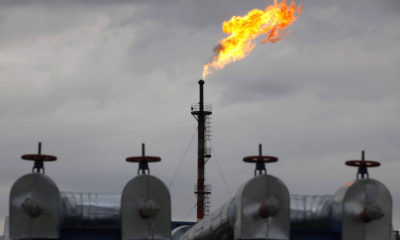- FG Evaluates 250 Firms’ Bids for Gas Flare Points
The Federal Government has begun the evaluation of statements of qualification submitted by about 250 firms for the commercialisation of gas being flared by oil companies operating in the country.
In October 2016, President Muhammadu Buhari inaugurated the Nigerian Gas Flare Commercialisation Programme, aimed at reducing gas flaring by harnessing flare gas to stimulate economic growth, drive investments and provide jobs in the Niger Delta through the utilisation of widely available innovative technologies.
The Chairman, Ministerial Steering Committee for the NGFCP, Mr Rabiu Suleiman, at the commencement of the evaluation of SOQ on Monday in Lagos, said the government had set a target of eliminating gas flaring by 2020.
“I must admit that this is a tall order but we are committed and determined to see that we do our best to ensure that we deliver what we have been assigned to do,” he added.
The Deputy Manager, Gas Production and Flare Monitoring, Gas Division, NNPC, Mr Olawole Ogunsola, noted that advertisements were placed late last year for companies willing to commercialise flare gas at flare points to show interest and submit statements of qualification.
According to him, the Petroleum Act, paragraph 35B, First Schedule, gives the government the right to take gas produced in association with crude oil and not taken by the operators or utilised.
He said, “So, the government is doing this via third-party companies in order to promote investment and get people who are qualified technically, who have the financial capability and the experience to work in the Niger Delta and help us harness this flare gas and take it to the market.
“Overall, about 250 companies have expressed interest, going by the data we have, and their statements of qualification will be evaluated. Those who make it will proceed to the next phase, which is the Request for Proposal phase, where the DPR, through the National Data Repository, will open the data room and they can have access to each flare points and then make a firm proposal on which flare points they are interested in.”
Ogunsola said the DPR had catalogued all flare points in the land, swamp, offshore and deep offshore, adding, “There are 178 flare points today and they are available for people to take.”
He said interested companies paid a fee of $1,000 to be able to get to the SOQ phase.
“Initially, when we had expressions of interest, there were about 850 companies. But when we proceeded to the second phase, we asked them for a fee and some fell along the way,” he said.
“The plan is that within the next few weeks, those who qualify at this phase will be announced, and they will proceed to the Request for Proposal stage. There will be a bidders’ conference. After the RFP stage, where the proposals submitted will be evaluated, preferred bidders will emerge and then permits will be issued. The plan is to make this happen before the end of the year,” Ogunsola added.

 Forex3 weeks ago
Forex3 weeks ago


 Naira2 weeks ago
Naira2 weeks ago
 Billionaire Watch2 weeks ago
Billionaire Watch2 weeks ago




 Naira2 weeks ago
Naira2 weeks ago




 Naira2 weeks ago
Naira2 weeks ago




 Naira4 weeks ago
Naira4 weeks ago


 Naira7 days ago
Naira7 days ago
 Banking Sector4 weeks ago
Banking Sector4 weeks ago
















